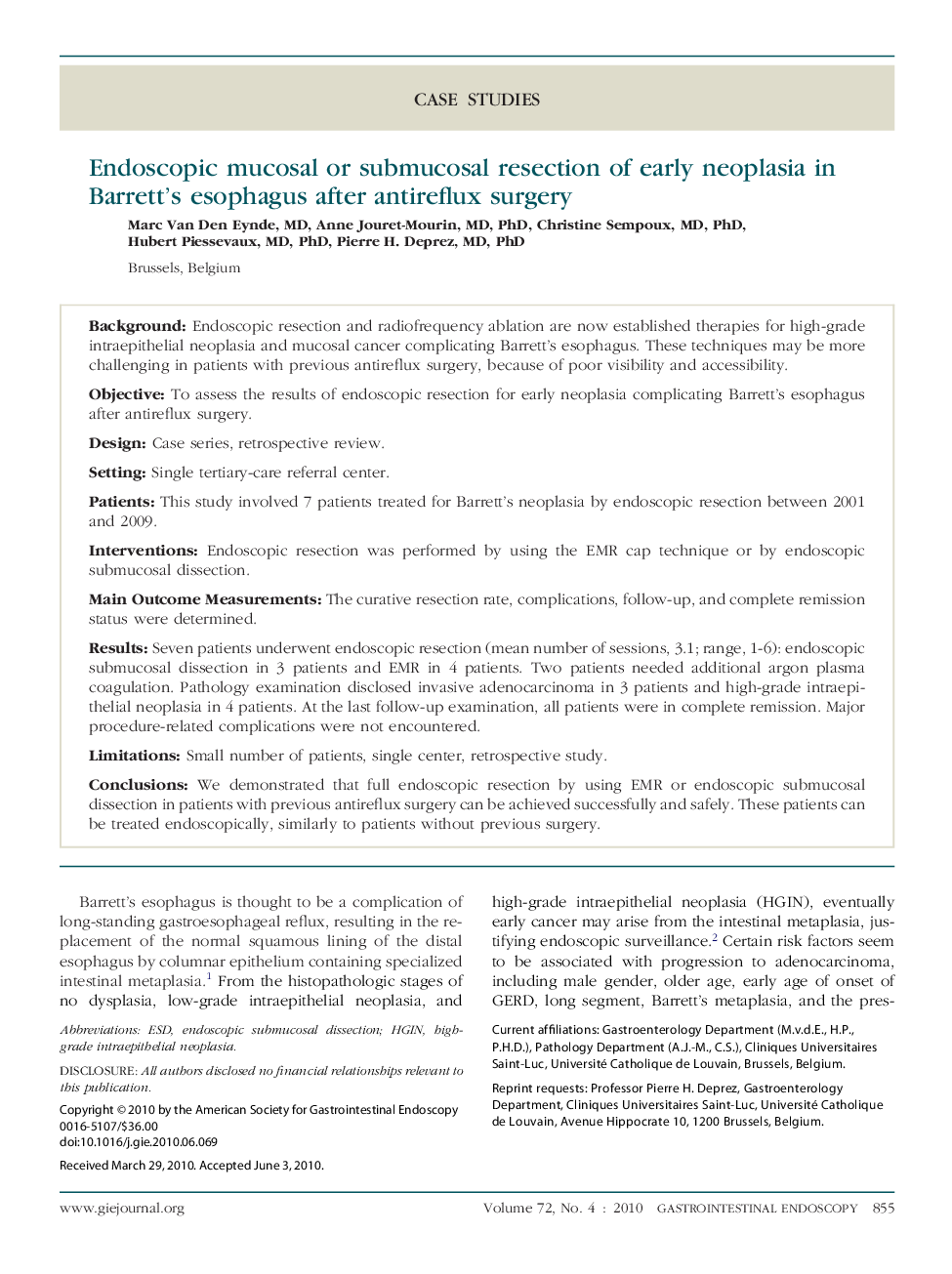| Article ID | Journal | Published Year | Pages | File Type |
|---|---|---|---|---|
| 3305258 | Gastrointestinal Endoscopy | 2010 | 7 Pages |
BackgroundEndoscopic resection and radiofrequency ablation are now established therapies for high-grade intraepithelial neoplasia and mucosal cancer complicating Barrett's esophagus. These techniques may be more challenging in patients with previous antireflux surgery, because of poor visibility and accessibility.ObjectiveTo assess the results of endoscopic resection for early neoplasia complicating Barrett's esophagus after antireflux surgery.DesignCase series, retrospective review.SettingSingle tertiary-care referral center.PatientsThis study involved 7 patients treated for Barrett's neoplasia by endoscopic resection between 2001 and 2009.InterventionsEndoscopic resection was performed by using the EMR cap technique or by endoscopic submucosal dissection.Main Outcome MeasurementsThe curative resection rate, complications, follow-up, and complete remission status were determined.ResultsSeven patients underwent endoscopic resection (mean number of sessions, 3.1; range, 1-6): endoscopic submucosal dissection in 3 patients and EMR in 4 patients. Two patients needed additional argon plasma coagulation. Pathology examination disclosed invasive adenocarcinoma in 3 patients and high-grade intraepithelial neoplasia in 4 patients. At the last follow-up examination, all patients were in complete remission. Major procedure-related complications were not encountered.LimitationsSmall number of patients, single center, retrospective study.ConclusionsWe demonstrated that full endoscopic resection by using EMR or endoscopic submucosal dissection in patients with previous antireflux surgery can be achieved successfully and safely. These patients can be treated endoscopically, similarly to patients without previous surgery.
